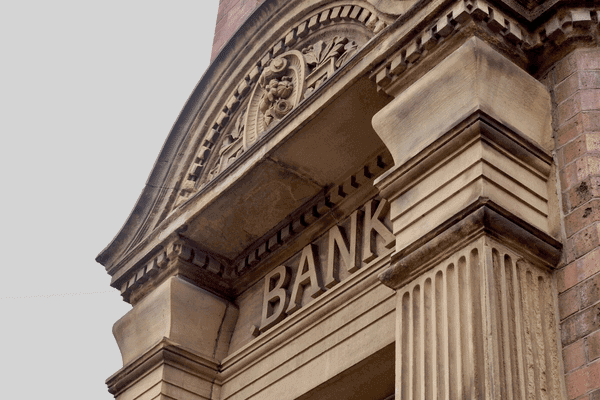Top 10 Forex Scams in Canada
The global Foreign Exchange (Forex) market turns over $7.5 trillion daily as of April 2022.
This gigantic sum explains the growing popularity of Forex trading, as it can be a very lucrative venture. Unsurprisingly, many scammers use this growing interest to further their ill intent.
In 2020, a man in Manitoba, Canada, lost over $550,000 to an offshore Forex trading scheme that involved two brands, International Derivatives Group and Valiant Markets. This victim and countless numbers of Canadians have fallen prey to these criminals.
Read on to learn the various Forex investment scams victims encountered in Canada to avoid becoming the next victim.
🔑 Key Takeaways
|
Common Forex Scams in Canada
Some foreign exchange frauds are common, while others are more subtle and can come from brokers and other non-broker sources. A big challenge in identifying scams is that many services and features available today are legitimate.
10 Most Frequent Canadian Forex Scams Encountered
According to Canadian law, all investment brokers and trading activities should possess licenses or authorization from the Investment Industry Regulatory Organization of Canada (IIROC).
However, unscrupulous scam artists use trojan horse-style tactics to exploit what are generally genuine offerings.
The Canadian Securities Administrators (CSA) warned the citizens, in January 2022, about investment schemes involving fraudulent websites that solicit investments via Forex, binary options, and crypto assets.
The ten most frequent Forex scams Canadians face in 2023 include the following;
1. ‘Holy Grail’ Forex Scams
Identifying and taking advantage of the best trading opportunities in the financial market is the most challenging part of trading, and scammers understand this.
Traders, especially beginners, constantly fear losing their money during trading, which scammers capitalize on. They promote software and trading apps that claim to have a “holy grail” trading system to protect these traders from market losses that aren’t true.
Once traders download this software or sign up for these trading apps, scammers trail their activities and convince them to do their bidding without them (victims) noticing anything.
| ✅ Pro Tip:
Be wary of free trading software offered by brokers. Verify its legitimacy and check for any hidden conditions before proceeding. If you’re searching for reliable stock trading companies, check out Reviewlution’s article on the leading Canadian stock trading platforms. |
2. Personal Data Scams
When signing up with a brokerage firm, you’ll need to share your private and confidential information, like:
- Name
- Residential address
- Email address
- Credit card details
A legitimate broker usually takes necessary security measures to ensure that your data remains private and is never shared or sold to a 3rd party.
On the other hand, scam brokers do the opposite by selling your information to a 3rd party. These 3rd parties send unsolicited emails or contact you with offers you’ve never considered.
| ✅ Pro Tip:
Selling personal data is also a common tactic for online casino scams. You must never share personal information, such as credit card details or social insurance number, unless you’re sure the broker is reputable, and the website is secure. |
3. Unusually High Leverage
Leverage is an excellent invention in CFD (Contract For Differences) trading, but it’s always like a two-faced coin. You can earn big profits on successful trades, but when you experience losses, they are also magnified.
Some fraudulent brokers offer unrealistically high leverage levels of up to 2000:1 to lure investors to promises of big profits. However, market price volatile movements can wipe out the bulk of a Forex trader’s margin with a single losing trade.
| ✅ Pro Tip:
If an offer seems too good to be true, it probably is. High returns, zero risk, or exaggerated leverage are often signs of potential scams. |
4. Guaranteed Returns Scams
This is a not-so-subtle investment scam that still manages to get victims. Here, investors are encouraged to join the company that trades in the Forex market to earn fixed profits periodically.
However, the truth is that the Forex market is not fixed, it’s fast and keeps on changing every second, and as such, profits and losses which are part of Forex trading cannot be forecasted.
Therefore, it’s impossible to guarantee any stipulated earnings to the investors.
| ✅ Pro Tip:
Conduct comprehensive research on their credentials before engaging with a broker. Check if they’re registered with the Investment Industry Regulatory Organization of Canada (IIROC) or other provincial regulatory bodies. |
5. PAMM Scams
The Percentage Allocation Management Module (PAMM) is a Forex mutual fund scam well-known in Canada. They pose as a legitimate group of cooperatives and invite Forex traders to be investors and participate in a managed fund.
They assure these investors of making huge profits with high figures exceeding market norms to lure investors in.
Many scam funds will claim that their fund managers are licensed, regulated, and qualified professionals, but they are not.
| ✅ Pro Tip:
Ensure the PAMM manager provides regular updates on the fund’s performance. Any delay or reluctance in sharing updates could be a red flag. |
6. Price Manipulation
This is the most popular scam scam brokers perform. They manipulate their trading platforms to disadvantage traders.
This can come in the form of negative slippage, where they fill the entry and exit orders at prices undesirable to the trader.
There is also ‘stop hunting,’ where the broker will seek to remove the stop loss the investor applied before streaming the correct prices. These eventually result in losing trades for investors.
| ✅ Pro Tip:
Take your time to understand the trading market before investing in Forex. Rushing into trades without a good grasp of the market dynamics can make you a prime target for scammers. |
7. EA/Trading Robots Scam
Expert Advisor (EA) modules and Trading Robots are powerful automated trading tools and are often value-add offerings with legitimate brokers.
Traders should know that automated robots don’t generate unlimited profits, it only automates manual strategy.
Scammers will entice traders with captions like “endless profits round the clock,” which is false, as even the most reputable solutions cannot ensure 100% accuracy or even close to that.
| ✅ Pro Tip:
Don’t hesitate to ask brokers about their operations, trading platform, fees, and commissions. Legitimate brokers will be transparent and open to answering your queries. |
8. Free Trading Software with a few ‘Recommended’ Brokers
This is a popular scam where fraudsters sell or even offer free trading software to investors if they deposit with a ‘recommended’ broker.
Some offer these free fake trading websites to their victims with the promise of guaranteed investment returns from their brokers.
The fraudster earns a commission by referring new clients to a broker (fraudulent broker). So they aim to lure in naïve investors with unclaimed promises to earn their commission.
| ✅ Pro Tip:
Look for online reviews or forums discussing the broker’s services. Real experiences from other traders can provide invaluable insights. |
9. Unseparated Client Bank Accounts
Scam brokers often operate a single bank account for their clients’ funds and operational money. This means they will likely boost operations using client money when they experience a shortage of funds in their accounts.
Worst-case scenario, if the broker cannot meet their financial obligations, your funds will be tied up with theirs and could even be claimed by their creditors.
| ✅ Pro Tip:
If something doesn’t feel right, trust your gut. It’s better to miss out on a ‘potential opportunity’ than to lose your hard-earned money to a scam. |
10. Fake Bonuses and Promotions
Brokers usually offer bonuses and promotions to traders, ensuring they meet regulatory guidelines and do not entrap the trader.
However, some shady brokers lure in investors with misleading promotions and have terms and conditions that are so stringent or outrightly unattainable. They end up losing their trading capital before getting a chance to withdraw any profits.
| ✅ Pro Tip:
Scammers may use pressure tactics to rush you into making a decision. A reputable broker will allow you the time and space to make an informed decision. |
Conclusion
Forex investment scams in Canada come in many ways and forms. If something seems too good to be true, there is a good chance it is fake.
Huge profits, trading conditions too good to be true, and trading schemes that avoid regulations are different types of forex scams you should avoid. Choose a regulated broker with a good reputation and a long history to prevent forex broker scams.
FAQ
To spot a Forex scam, ask yourself:
Is the broker regulated? If regulated, how trustworthy is the regulatory body? Is there any credible information about the company included on its website? Is the broker offering automatic trades or signals to guarantee profits?
It would be best if you got answers to these and others to be assured that it’s not a scam.
Forex trading is legal in Canada, and it’s regulated province by province.
Forex traders in Canada also pay income tax. They may also be charged Goods and Services Tax (GST) or the Harmonized Sales Tax (HST) for traders earning above $30,000 annually.










